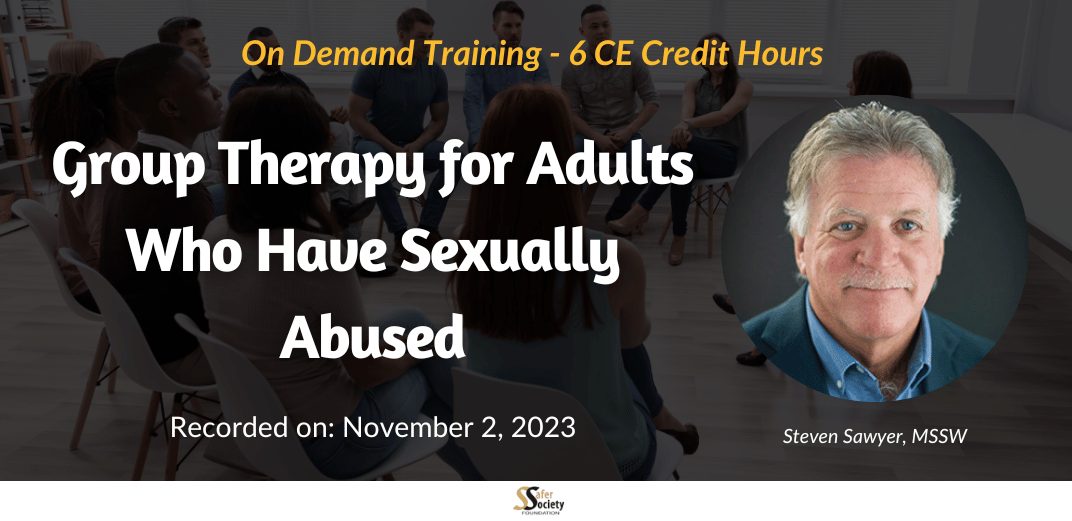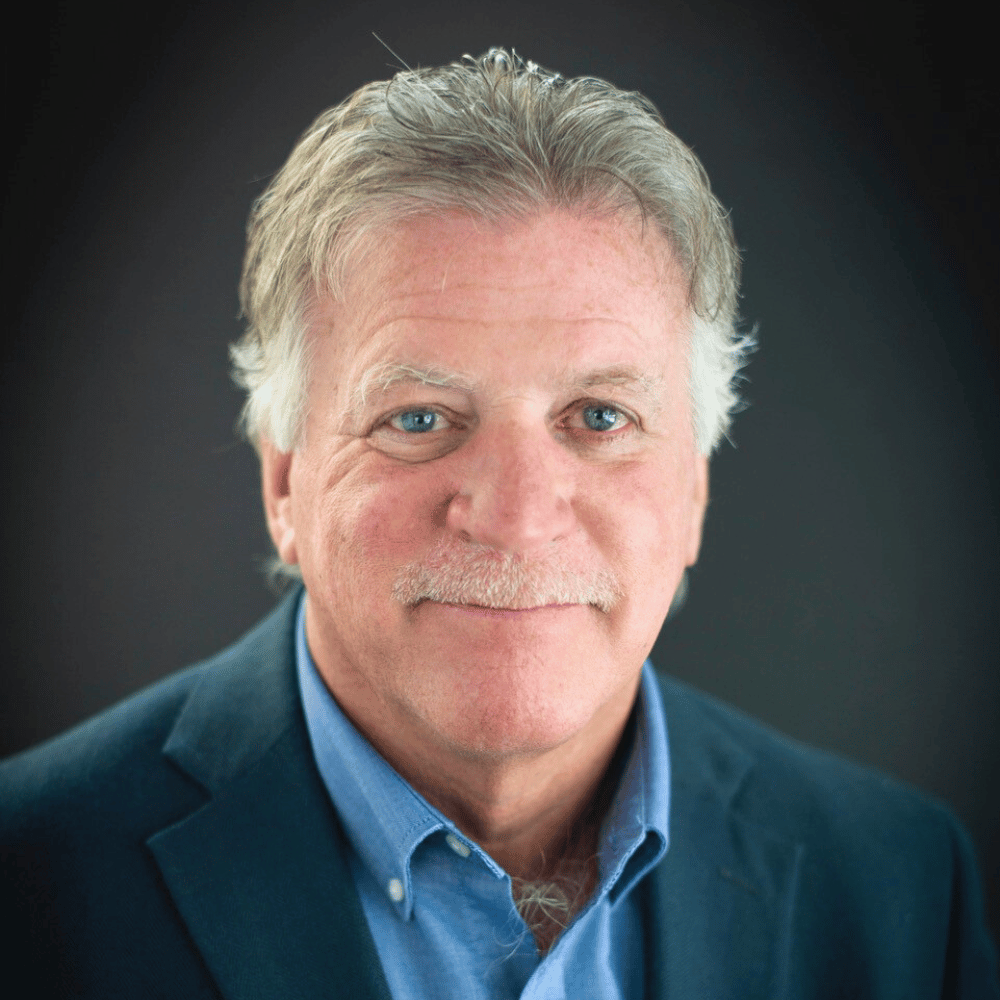
Group Therapy for Adults Who Have Sexually Abused
Already purchased an On Demand training?
Click here to access your Safer Society On-Demand Training Center account.
For many years, group therapy has been the preferred mode of treating adults who had sexually abused, quite simply because it is more efficient—in terms of both time and cost—than individual treatment. Today, however, we know that group treatment is about so much more than treating many clients at once.
This online training focuses on how treatment providers can create and facilitate high-functioning treatment groups that benefit clients and improve treatment outcomes. It outlines what works in group treatment and what the research evidence has shown. Areas such as group cohesion, the therapeutic alliance, and how member interactions deepen the group’s impact on each group member form the center of this training’s discussions.
Topics covered include:
- Group treatment as a safe space for making difficult changes.
- The evidence base that supports the benefits of group-based treatment.
- Essential elements of effective groups.
- Group facilitation techniques.
- Clinical issues, including topics such as “myopic thinking” and resisting the urge to intercede or micromanage clients’ daily lives feeling overly responsible for outcomes.
This training further explores how to build adherence to a well-defined, clearly communicated structure for creating an effective group atmosphere. It reviews significant moments that occur in groups and various scenarios that training participants can expect. Special attention will be given to the challenges this work can create for clinicians; for example, knowing when to intercede and when to resist the urge to micromanage clients’ interactions and unwittingly impair group processes.
This training is part four of a five-part course.
To learn more about the full course on assessing and treating adults who sexually abuse, please click here.
1) Describe the history of group treatment interventions.
2) Explain essential elements of effective groups, such as cohesion and the therapeutic alliance.
3) Define and implement an effective structure for group treatment sessions.
4) Describe research studies supporting group treatment effectiveness.
5) Implement techniques for selecting members of groups.
6) Explain how clinician characteristics can help or hinder a group.
Audience
This training is for professionals who work with or are interested in group therapy, particularly in the context of treating adults who have been sexually abused. The training benefits novice and seasoned professionals, including clinicians, psychologists, social workers, counselors, and more.
Content Level
Disclosure
Continuing Education Approval
American Psychological Association (APA)
Safer Society Foundation, Inc. is approved by the American Psychological Association (APA) to sponsor continuing education for psychologists. Safer Society Foundation, Inc. maintains responsibility for this program and its content.
Who's Presenting

Steven Sawyer, MSSW, LICSW, ATSA-F
Mr. Sawyer earned his MSSW from the University of Wisconsin in 1980. He is a Licensed Independent Clinical Social Worker and is founder and President of Sawyer Solutions, LLC, a private clinical and consulting practice. He was a founding board member and Executive Director of Project Pathfinder, Inc., a founding board member and past chapter president of the Minnesota Chapter of the Association for the Treatment of Sexual Abusers (MNATSA), and is a past board member and chair of the Minnesota Board of Social Work.
In his clinical practice he provides clinical and consultation services to individuals, families and organizations. Over the past 40 years he has assessed and treated hundreds of men who have committed sexual crimes and has supervised or been involved in the treatment of several thousand men in sexual offender treatment.
For more than 20 years he served as a consultant to catholic religious orders on matters of sexual perpetrator assessment, and sexual abuse prevention and management. He has provided clinical supervision and training services for the State of Minnesota since 2013 and has provided clinical supervision to more than 40 clinicians. He has consulted with civil commitment programs, and provided full day trainings and webinars for state agencies and clinicians.
Mr. Sawyer is an experienced public speaker for the media and professionals. He has given lectures and trainings locally and nationally to public and professional groups about sexual offender treatment, group therapy and sexual abuse prevention. He has published more than 20 articles, workbooks, and book chapters on topics ranging from a program for men who use prostitutes, sexual abuse in the Catholic Church, group therapy with adult sexual offenders, sex dysfunction in sex offenders, and sex offender treatment program outcome research.
